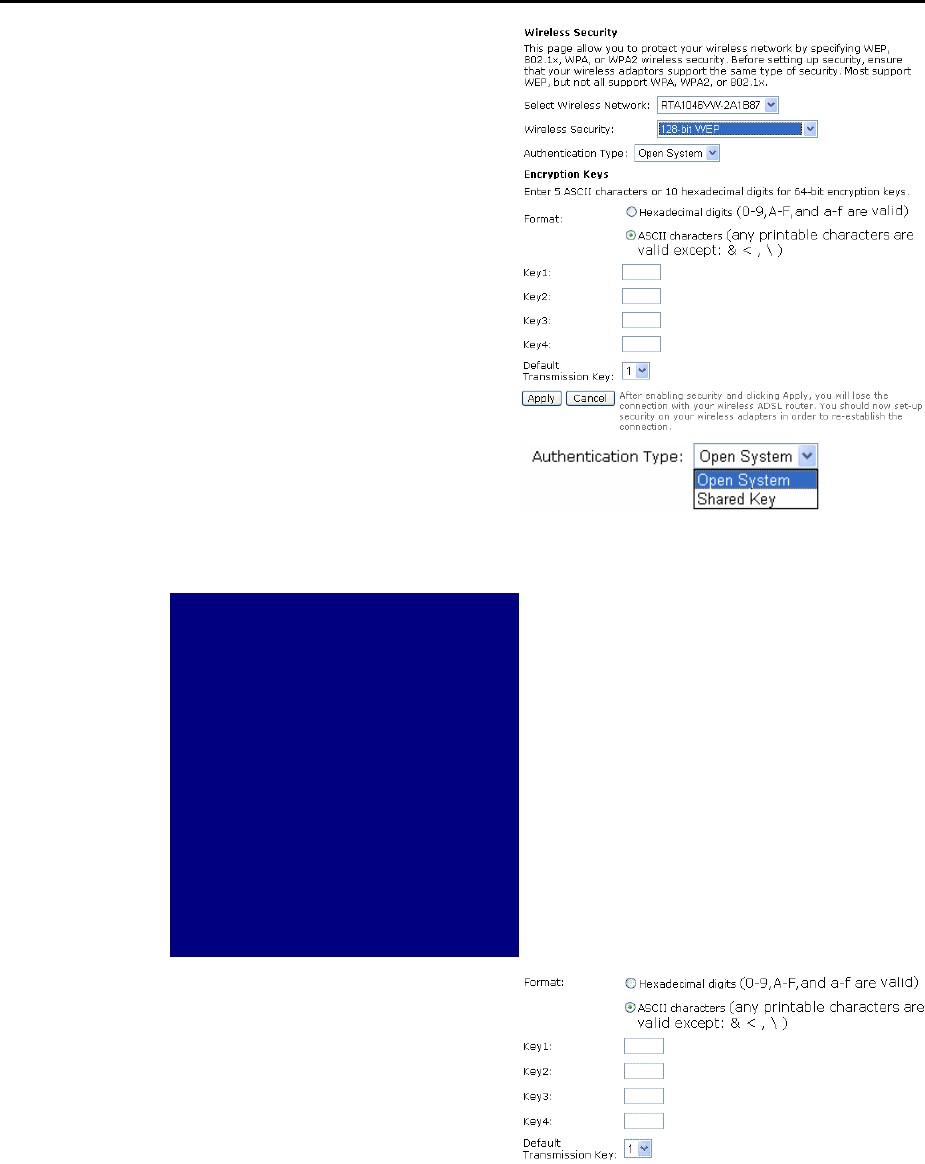
Wireless IAD User Manual
110
Authentication Type:
The ADSL Router supports two
authentication types: Open System
and Shared key. This should be
considered with the WEP (Wired
Equivalent Privacy) mechanism.
Open System means that it allows any
client to authenticate and attempt to
communicate with a bridge. The client can
only communicate if its WEP keys match
the router’s WEP keys.
Shared Key means that a bridge or router
will send an unencrypted text string to any
client attempting to communicate with the
router. The client requesting authentication
encrypts the text and sends back to the
router. Both unencrypted and encrypted
can be monitored, yet it leaves the bridge
open to be attacked by any intruder if he
calculates the WEP key by comparing the
text strings. That is why shared key
authentication can be less secure than
open authentication.
Format:
Choose the form of encryption key.
You have to select either
Hexadecimal digits or ASCII
characters and type the keys on the
fields of Key 1 to Key 4.
Key 1 to 4:
Fill out the WEP keys according to the
key length. For 64-bit WEP mode, the
content you can type is 5 characters
or 10 hexadecimal digits; for 128-bit
WEP, the content you can type is 13
characters or 26 hexadecimal digits.
Default Transmission Key:
Select one of the keys that you set on
the Key boxes as default key.
Click Apply for activation when the
settings are done.


















